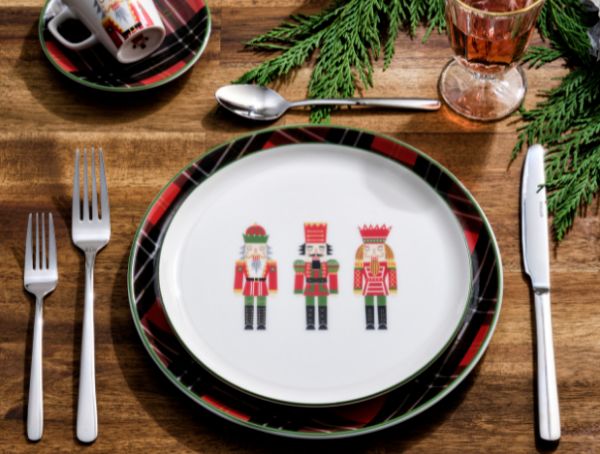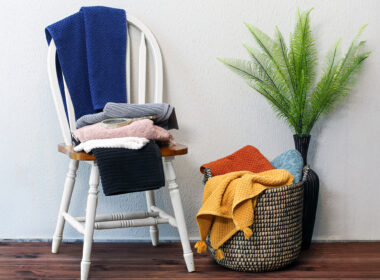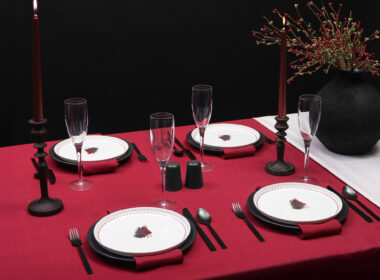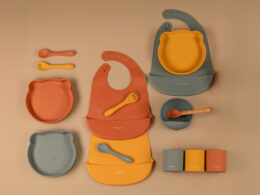Porcelain appears in many different areas thanks to its elegance and durability. One of the most well-known uses of porcelain is in dinnerware. Stylishly designed porcelain plates, bowls, and cups allow you to create sophisticated presentations when hosting guests. For example, porcelain dinner sets in pastel tones or natural motifs can be used for both daily meals and special occasions. In addition, modernly shaped porcelain coffee cups provide a simple yet refined touch.
In the world of home décor, porcelain has a special place. To add elegance to your home, you can use a modern porcelain vase or a decorative wall plate. At the same time, sugar bowls, teapots, and decorative objects with minimal patterns can refresh the atmosphere of the kitchen or living room. Porcelain flowerpots are also an elegant option for those who want to create a natural vibe indoors.
In professional settings, porcelain stands out with its durability. Specially designed plates used in restaurants and hotels maintain their shine and strength despite heavy use. In addition, heat-resistant products such as porcelain baking dishes offer both practical and aesthetic solutions. Colorful and patterned porcelain casseroles make it possible to serve dishes directly at the table in a stylish way.
In the world of art, porcelain attracts attention with both its historical significance and modern designs. Handmade ceramic vases or collectible objects not only present an aesthetic stance but also stand out as unique works of art.
Where Is Glass Used?
Glass finds its place in many aspects of life with its aesthetic look and functionality. Especially in kitchens, transparent glass water bottles and glasses are often preferred. Colored glass cups not only add visual appeal to beverages but also make the presentation more aesthetic. Decorative glass serving plates provide both practicality and elegance at the dining table.
In interior design, glass products are highly popular. For example, a stylish glass lampshade or candle holder can bring a modern atmosphere to your home. Additionally, colored glass vases combined with fresh flowers add natural energy to the space. These products can serve as eye-catching focal points even in minimalist interiors.
In architecture, glass offers wide applications in terms of both aesthetics and functionality. Large glass panels, windows, and balcony railings are indispensable for modern designs. Thanks to its transparency, glass allows maximum natural light indoors and contributes to energy efficiency.
At home, glass products also have a strong decorative impact. Glass trays or storage containers are both functional and aesthetic. The transparency of glass containers makes it easier to organize and store food.
What Are the Advantages of Porcelain Products?
Porcelain offers an aesthetic appearance with its smooth and glossy surface. As an elegant and sophisticated material, it is especially preferred for dinnerware and decorative products. These products can be produced in both modern and classic designs, making them suitable for every type of living space.
Known for its durability, porcelain is highly resistant to breakage and scratches. Fired at high temperatures, this material is hardened and long-lasting, maintaining its form for years with proper use. It is also resistant to high temperatures, making it safe for use in ovens and microwaves.
Porcelain products are also highly hygienic. Their surface does not absorb liquids and is non-porous, meaning they do not harbor bacteria, stains, or odors. They do not release harmful chemicals when in contact with food, making them a safe option for food storage and serving.
Another significant advantage of porcelain is its ease of cleaning. Its smooth surface can be easily washed by hand or in the dishwasher. Its stain-resistant structure is especially practical when used with coffee, tea, or colorful foods.
What Are the Advantages of Glass Products?
Glass products offer many advantages in terms of health, environment, and aesthetics. They preserve the natural taste and aroma of food and drinks, making glass a safe storage material. Additionally, the smooth surface of glass is easy to clean and does not harbor bacteria, ensuring hygienic use.
From an aesthetic perspective, glass products stand out with their glossy and transparent appearance. Glass can be produced in different shapes and designs, adding elegance to interiors. From decorative objects to kitchenware, glass adapts to both modern and classic styles. Its ability to transmit light creates a brighter and more spacious atmosphere in interiors.
As an eco-friendly material, glass is 100% recyclable and long-lasting. It can be reprocessed repeatedly into new products, minimizing its environmental impact. Compared to single-use alternatives like plastic, glass stands out for its durability and environmental benefits.
Glass products are also heat-resistant, making them ideal for baking dishes and kitchenware. Special types of glass that withstand sudden temperature changes ensure safe use. Moreover, since glass is hypoallergenic, it does not contain substances that may cause allergic reactions, making it ideal for sensitive individuals.
Things to Pay Attention to When Using Porcelain and Glass Products
When using porcelain and glass products, it is important to be mindful of their delicate structure. To prevent scratches on porcelain, avoid contact with rough surfaces. Likewise, in glass products, sudden temperature changes should be avoided to reduce the risk of breakage.
During cleaning, a soft cloth or sponge should be used for both materials. Abrasive cleaners may damage the glossy surface of porcelain and the clarity of glass. Decorative porcelain and glass objects, in particular, should be protected from impact and stored safely.
Both porcelain and glass are valuable materials that combine aesthetics with functionality. With the right care and usage habits, you can extend the lifespan of these products and enjoy their benefits to the fullest.













